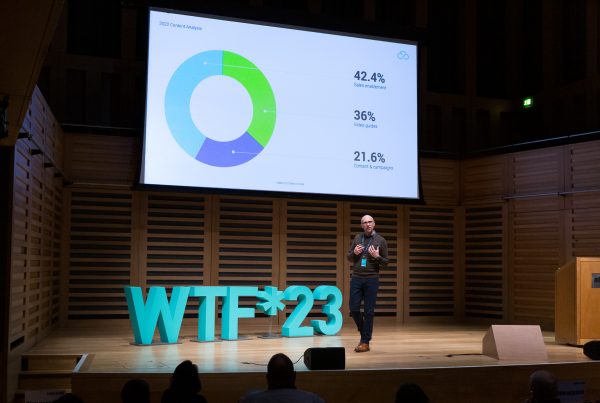The CPaaS market has experienced remarkable growth in recent years, transforming the way businesses across industries communicate and integrate through a range of applications.
CPaaS, an acronym for Communications Platform as a Service, refers to cloud-based platforms that provide a set of low-code or no-code tools, APIs (Application Programming Interfaces), and webhooks. This allows developers to embed real-time communication features into their existing applications and services, rather than simply operating a separate communications system provided by their vendor.
This blog post explores the rapid growth of the CPaaS market, highlighting the factors driving its expansion, key benefits, industry use cases, and future trends.
Overview of the CPaaS market
The CPaaS market has emerged to meet the increasing demand for seamless communication and integration capabilities. Traditional communication methods were often fragmented and lacked interoperability, hindering effective collaboration and customer engagement.
CPaaS platforms revolutionised this landscape by offering a comprehensive set of features, including voice calls, video chats, SMS messaging, and more. The market is comprised of various vendors, each providing unique offerings and targeting specific industries or use cases.
Data from Statista tells us the CPaaS market grew from $8.2b to £9.9b from 2021-2022, representing almost 20% YoY growth. Perhaps more interesting however is the almost 50% CAGR forecast in the next 3 years, which will see the market valued at $26b by 2025.
What is driving CPaaS market growth?
Several factors have contributed to the substantial growth of the CPaaS market, positioning it as a key enabler for modern communication and integration needs.
Firstly, the increased adoption of cloud-based solutions across industries has paved the way for CPaaS platforms to flourish. By leveraging the scalability, cost-effectiveness, and reliability of the cloud, businesses can effortlessly integrate CPaaS capabilities into their existing infrastructure.
Secondly, the rising demand for omnichannel communication and customer engagement has fuelled the growth of CPaaS. In today’s hyper-connected world, customers expect seamless interactions across multiple channels, such as voice, SMS, email, and social media.
CPaaS enables businesses to meet these expectations by providing a unified platform for managing and orchestrating customer interactions. CPaaS serves as an evolution of the UCaaS (Unified Communications as a Service) market, where vendors compete on plug-and-play integrations for customers to make use of. By comparison, CPaaS offers a greater level of versatility by opening up the code base of the product for customers to make use of the features to meet their specific needs.
Furthermore, the integration of CPaaS with emerging technologies like the Internet of Things (IoT) and Artificial Intelligence (AI) has significantly boosted its adoption.
Key benefits of CPaaS
The CPaaS market’s growth can be attributed to the numerous benefits it offers to businesses and developers alike. Firstly, CPaaS enhances the customer experience by enabling seamless and personalised communication across various channels. Customers can easily engage with businesses through voice, messaging, or video, fostering improved satisfaction and loyalty.
Secondly, CPaaS improves operational efficiency and productivity for businesses. By integrating communication features directly into existing workflows and applications, organisations can streamline processes, eliminate manual tasks, and achieve higher efficiency.
Thirdly, CPaaS offers flexibility and customisation options for developers and businesses. With a wide range of APIs and tools, developers can build tailored communication solutions that align with their specific requirements. Businesses can add communication capabilities to their applications or services without reinventing the wheel, saving time and resources.
Lastly, CPaaS platforms facilitate seamless integration with existing applications and systems, eliminating silos and enabling data exchange between different software components. This integration empowers businesses to create comprehensive communication solutions that seamlessly work together.
Industry Use Cases
In the enterprise sector, CPaaS enables effective communication and collaboration among remote teams, by allowing businesses to integrate voice, video, and messaging capabilities into their existing collaboration tools, enabling real-time communication and enhancing productivity.
But aside from this general use case, the versatility of CPaaS platforms has resulted in successful implementation across various industries.
E-commerce: CPaaS can be integrated into e-commerce platforms to enhance customer engagement and support, enabling features such as SMS notifications for order updates, click-to-call functionality for customer inquiries, and in-app chat for real-time assistance, improving the overall shopping experience. For instance, a customer receives an SMS notification when their order is shipped, keeping them informed and engaged throughout the purchase journey.
On-demand Services: CPaaS is routinely utilised by on-demand service providers, such as taxi or food delivery companies to enable seamless communication between users, drivers, and support teams. This includes functionalities like SMS verification, two-way messaging for order updates, and voice calls for driver-customer communication. For example, a food delivery platform uses CPaaS to notify customers when their order is out for delivery and allows them to contact the driver if needed.
Travel and Hospitality: In the travel and hospitality industry, CPaaS can facilitate efficient communication between hotels, airlines, travel agencies, and customers. It enables features like automated booking confirmations, flight status notifications via SMS, and in-app chat for personalized customer support. For instance, a hotel uses CPaaS to send automated SMS notifications to guests with booking details and offers a chat feature within their app for concierge services.
Financial Services: CPaaS is used by banking and financial service applications to improve security, streamline communication, and provide better customer service. It enables functionalities like two-factor authentication via SMS, real-time notifications for account activities, and voice calls for customer inquiries. For example, a bank may send customers real-time fraud alerts via SMS and allow them to initiate secure voice calls with customer support for immediate assistance.
Healthcare: In the healthcare industry, facilitating secure and efficient communication between healthcare providers, patients, and caregivers. It enables features like appointment reminders via SMS, telemedicine video consultations, and secure messaging for sharing medical information and test results. For instance, a healthcare provider uses CPaaS to send SMS reminders to patients for upcoming appointments and allows patients to securely message them for non-urgent inquiries.
Education: CPaaS can enhance communication in the education sector, by enabling functionalities such as automated attendance notifications via SMS, in-app messaging for student-teacher interaction, and voice calls for parent-teacher communication, fostering efficient and effective remote learning environments. For example, a school could use CPaaS to send daily automated attendance updates to parents.
These are just a few examples of how CPaaS can be applied across various industries. The flexibility and versatility of CPaaS platforms allow businesses to tailor communication solutions to their specific needs, delivering enhanced customer experiences and operational efficiencies.
The future for CPaaS
Looking ahead, the CPaaS market is set for continued growth and innovation. As technology advances, CPaaS platforms will likely integrate with emerging trends such as 5G connectivity and edge computing, enabling faster and more efficient communication.
Moreover, the demand for AI-powered communication solutions will rise, driving the development of intelligent chatbots and virtual assistants that leverage CPaaS capabilities. These AI-driven communication tools will enhance customer interactions, provide personalized experiences, and automate routine tasks.
Furthermore, as businesses increasingly focus on digital transformation, the CPaaS market will witness broader adoption across industries. Small and medium-sized enterprises (SMEs) will increasingly recognise the benefits of CPaaS in streamlining their communication processes and enhancing customer engagement with a personalised and tailored service, in turn transforming how they communicate and engage with customers in the digital age.



